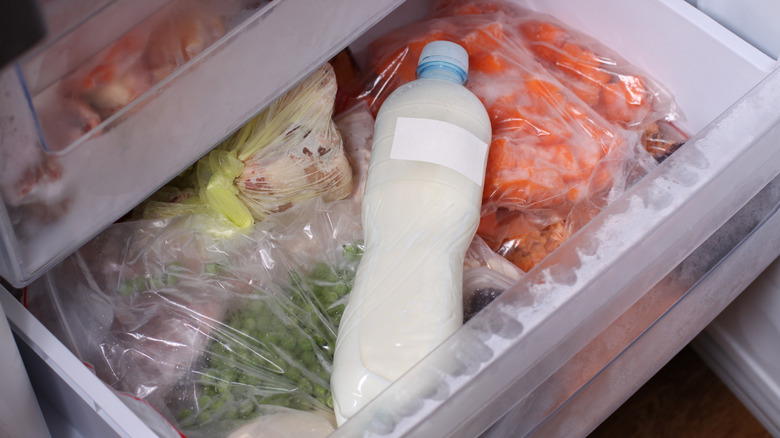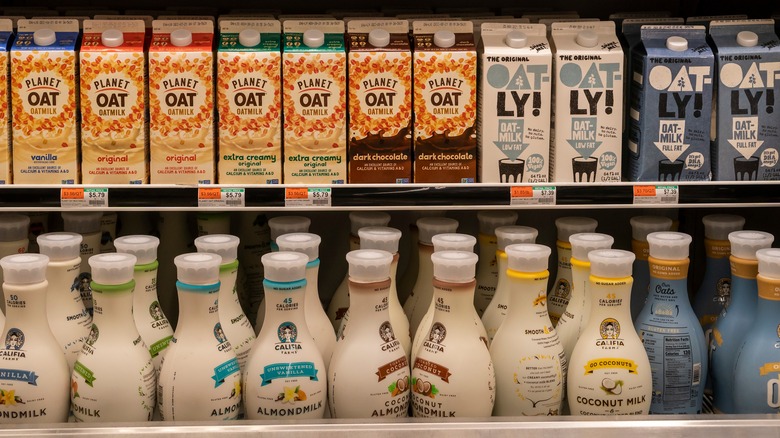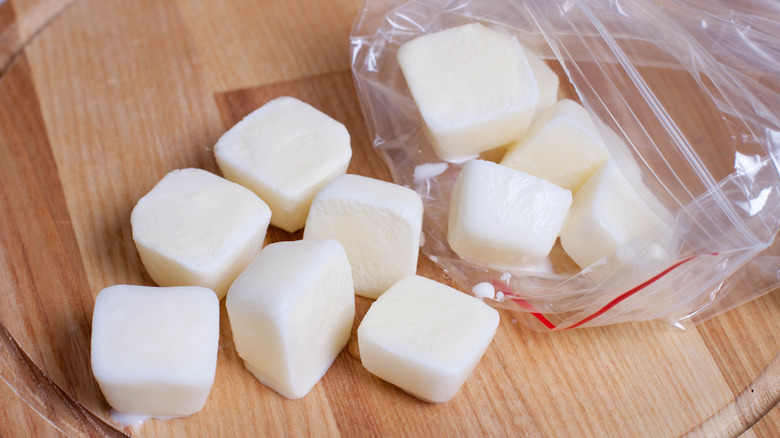Why It's Best To Avoid Freezing Plant-Based Milk
While "milk" may have come to refer to various things, it remains a kitchen staple. Whether you've swapped to plant-based milk for health, animal welfare, or environmental reasons, the price differences between alternative milk and dairy milk — which can often double— are enough to make you want to make the most out of that carton. But, when it comes to plant-based milk, it's not as simple as throwing it in the freezer.
For as long as they've been around, dairy products have been notorious for their short shelf lives and expiration dates. People have often strolled to their refrigerators early in the morning in anticipation of their morning cereal, only to open the milk carton to that dreaded sour milk smell and lumpy texture. To avoid this, dairy milk can easily be put in the freezer before its "best by" date or before you go on that vacation and thawed when it's time for use. Unfortunately, the same can't be said for your plant-based milk.
The issue with freezing milk alternatives
Freezing your milk, whether it be dairy or alternative, is an easy way to reduce your food waste and extend the lifetime of your products. However, not all types of milk freeze the same. That's because milk is an emulsion, a mixture of liquids that don't naturally blend together, which in milk's case are fat and water.
The two homogenized components, fat and water, tend to separate when frozen, causing your milk to be more grainy after thawing it. Considering some plant-based milk tends to separate on its own in the fridge and require a good shake prior to using them, you can imagine they'd separate even more in the freezer.
That said, the more fat your milk contains, the more it will separate. So you can bet that some plant-based milk will freeze somewhat better than others, and some not at all. In fact, certain types may even come out looking curdled due to the separation that occurs.
Worst plant-based milk for freezing
All in all, milk with less fat, such as skim or reduced fat, tend to freeze better than whole milk. The same can be said for plant-based milk; however, you may not have the same convenience of labels to follow. Instead, you'll have to evaluate each milk type separately. You'll also surely need to do some blending, as all types of milk will separate a bit. However, there are some you should avoid altogether.
Coconut, almond, soy, flax, almond, and oat milk are among the ones you should keep away from the freezer as they will most surely separate in the process and have a grainy unappetizing texture. Keep in mind that many brands sell different varieties of plant-based milk with labels like "extra creamy" or "full fat," which you'll want to avoid as they'll separate more than others.
Instead, if you do decide to freeze plant-based milk, be sure to opt for the low-fat or regular versions of it. It's also recommended that you freeze your plant-based milk in an ice cube tray and save it for smoothies or cooking, as the texture won't be as necessary, and you'll still get the same results.


